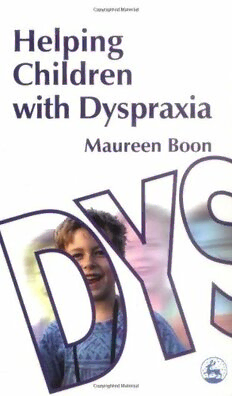
Helping Children With Dyspraxia PDF
112 Pages·2001·0.784 MB·English
Most books are stored in the elastic cloud where traffic is expensive. For this reason, we have a limit on daily download.
Preview Helping Children With Dyspraxia
Description:
Dyspraxia is a descriptive term used for children who have co-ordination difficulties. Although many dyspraxic children are of normal intelligence, they may have difficulty organizing or carrying out movement, speaking clearly or expressing ideas. This work begins by answering the questions commonly asked by parents about behaviour causes, diagnosis and assessment, before going on to discuss theraputic inventions. Drawing on her extensive experience working with dyspraxic children and liaising with their mainstream schools, the author shows how the theraputic approach can benefit this group and how parents and teachers can actively participate in the child's therapy. Information is provided, along with ideas for parents and teachers wanting to improve the child's movements and language abilites and thus increase their self-confidence and self-esteem.
See more
The list of books you might like
Most books are stored in the elastic cloud where traffic is expensive. For this reason, we have a limit on daily download.
